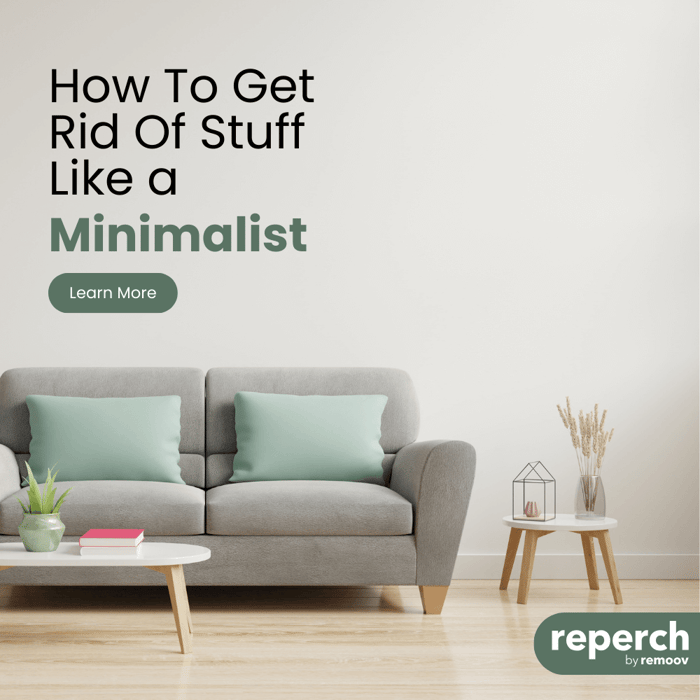Decluttering your home might seem like a simple task. You roll up your sleeves, put on some music, and start tossing out old and unused items. Yet, for many people, the reality is far more overwhelming. It’s not just about the stuff; it’s about the emotions, memories, and fears tangled up in every drawer and closet.
If you’ve ever felt paralyzed while attempting to declutter, you’re not alone. Clearing the clutter can feel impossible for various reasons, from decision fatigue to emotional attachments. In this article, we’ll explore why letting go can be so challenging and offer strategies to help you move forward.
Understanding the Struggles Behind Decluttering
1. Clutter as a Placeholder for Emotions
Clutter often represents more than just physical objects; it’s a manifestation of emotions and unresolved experiences. Old letters might carry traces of a relationship you never quite moved on from, or a pile of baby clothes may represent the passage of time and the bittersweet feelings of your children growing up.
When we say, “It’s just stuff, let it go,” we overlook the emotional weight these items hold. Processing these emotions is a necessary step before you can truly declutter. Ask yourself what these items mean to you and why they’re hard to release. Acknowledge those feelings, and give yourself permission to let go.
2. The Fear of Making the Wrong Decision
"What if I need this someday?" is a common refrain during decluttering. This question can lead to paralysis because it taps into our fear of regret and uncertainty. No one wants to feel like they’ve made the wrong decision, especially when it involves throwing something away.
One way to overcome this fear is to focus on self-trust. Ask yourself: If I needed this someday and didn’t have it, could I find an alternative solution? Often, the answer is yes. Cultivating confidence in your ability to adapt and problem-solve can make letting go feel less daunting.
3. Decision Fatigue and Overwhelm
Decluttering involves making countless decisions about what to keep, donate, or toss. This can lead to decision fatigue, where your brain becomes so overloaded that it struggles to make even the simplest choices.
To combat this, break your decluttering process into manageable chunks. Start with one drawer, one box, or one small section of a room. Celebrate those victories and use the momentum to tackle larger areas over time.
4. Unrealistic Expectations
Many people approach decluttering with the belief that it will be a quick and straightforward process. But when faced with a mountain of items, they quickly feel overwhelmed and defeated.
Decluttering isn’t just about physical effort; it’s a mental and emotional challenge. Adjust your expectations by understanding that clearing years of accumulated clutter takes time. Consistency and patience are key.
5. Clutter Represents Our Stories
Every item in our homes tells a story about who we are, who we were, or who we want to be. A designer dress you’ve never worn might represent aspirations for a different lifestyle, while old craft supplies might remind you of a hobby you no longer pursue.
Letting go can feel like abandoning a part of yourself or admitting that a dream didn’t materialize. Instead of viewing it as a failure, reframe the narrative. Holding onto these items doesn’t serve your present self. Release them with gratitude for the role they played in your journey.
Practical Strategies for Overcoming Decluttering Challenges
1. Start Small and Build Momentum
Begin with an area that feels manageable, such as a bathroom drawer or a single shelf. Success in these smaller spaces can create the momentum you need to tackle bigger projects.
2. Set a Vision for Your Space
Before diving into decluttering, visualize your ideal space. How do you want it to look and feel? Having a clear goal will guide your decisions and keep you motivated.
3. Focus on Categories, Not Rooms
Instead of decluttering room by room, try sorting by categories, such as clothing, books, or sentimental items. This approach, popularized by Marie Kondo, helps you see the full extent of your belongings and make more intentional choices.
4. Create a “Maybe” Box
If you’re struggling to let go of certain items, place them in a “maybe” box and revisit them in a few months. If you haven’t needed or thought about those items, it’s a sign that you’re ready to let them go.
5. Embrace Self-Compassion
Decluttering can unearth a mix of emotions, from guilt over money spent to sadness over memories attached to objects. Be kind to yourself during this process. It’s okay to feel conflicted or take breaks when needed.
When Decluttering Feels Impossible: The Role of Emotional Clutter
Sometimes, the stuff in your home reflects the clutter in your mind. Stress, grief, or unresolved issues can make the process even more daunting. If this resonates with you, consider journaling, talking to a trusted friend, or seeking support from a therapist to address the underlying emotions.
Decluttering your space and your mind often go hand in hand. As you let go of physical items, you may also find yourself releasing mental and emotional baggage.
The Benefits of Letting Go
1. More Space for What Truly Matters
Decluttering creates physical and mental space for the things that genuinely add value to your life, whether that’s meaningful relationships, hobbies, or relaxation.
2. Reduced Stress and Anxiety
Clutter can be visually and mentally overwhelming. A tidy and organized space often leads to a calmer and more focused mind.
3. A Sense of Accomplishment
Each item you let go of is a small victory. Over time, these victories add up, leaving you with a sense of pride and accomplishment.
Conclusion
Decluttering isn’t merely about tidying up your space—it’s a transformative journey toward clarity, peace, and intentional living. At Reperch, we believe in helping you embrace the freedom that comes from simplifying your life. By understanding the emotional and mental hurdles tied to your possessions, you can tackle decluttering with practical strategies like starting small, visualizing your ideal space, and practicing self-compassion. Letting go not only makes room for what truly matters but also allows you to create a home that reflects your values and lifestyle. Take it one step at a time, and trust that with Reperch, you can turn your home into the sanctuary you’ve always envisioned.








